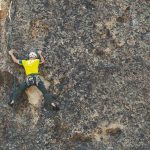How UK Sports Academies Operate to Nurture Emerging Talent
UK sports academies play a pivotal role in nurturing talent by providing a structured environment focused on athlete development from an early stage. Their core mission is to identify promising individuals and guide them through tailored training, education, and personal growth programs designed to maximize potential.
The typical structure of UK sports academies includes clear objectives to enhance technical skills, tactical understanding, physical conditioning, and mental resilience. These academies operate with multi-faceted support systems, combining expert coaching, sport science, and medical care to ensure holistic athlete development.
Additional reading : What impact does Brexit have on UK sports?
Institutional support is a cornerstone, with academies often linked to local clubs, schools, and national governing bodies. This collaborative network offers emerging athletes access to specialist resources, competitive opportunities, and mentoring. By maintaining consistent monitoring and feedback, these academies adapt individual plans to address progress and specific needs.
In summary, UK sports academies are meticulously designed institutions nurturing talent through comprehensive development pathways, embedded support mechanisms, and strategic collaborations that collectively foster the next generation of elite athletes.
Topic to read : Find your perfect tactical bag: durable, stylish, and versatile
Training Programs and Coaching Methods
UK sports academies implement structured training schedules tailored to optimize athlete development. Such sports academy training programs typically include a mix of physical conditioning, technical drills, tactical sessions, and recovery periods. This systematic approach balances intensity with adequate rest, ensuring athletes can perform at peak levels while minimizing injury risk.
Coaching methods within these academies leverage specialist staff, including former elite athletes, physiotherapists, and sport scientists. Their expertise enriches the training process, as coaches customize techniques to suit individual athlete needs. Real-time feedback and video analysis are commonly used to refine skills and strategic understanding, fostering continuous improvement in athlete performance.
Innovations in coaching extend to data-driven performance analysis, which integrates metrics like workload, biomechanics, and physiological responses. This scientific approach offers precise insights, enabling coaches to adjust training loads and target weaknesses effectively. By embracing these advancements, UK sports academies maintain a competitive edge and ensure athletes develop with both efficiency and care.
Talent Identification and Recruitment Processes
Talent identification is a fundamental pillar within UK sports academies, crucial for nurturing talent from the earliest stages of athlete development. These academies establish extensive scouting networks that source promising individuals through local clubs, schools, and community programs. The goal is to detect athletes demonstrating potential skills, physical attributes, and mental traits aligned with future elite performance.
Athlete recruitment in UK sports academies involves methodical selection processes. These typically begin with open or invitation-only trials, where athletes undergo assessments of their technical abilities, physical fitness, and tactical understanding. Age-group pathways are carefully structured to provide progression opportunities, ensuring that recruitment decisions align with long-term development plans. This approach maintains a continuum from grassroots participation through to elite levels.
Moreover, diversity and inclusion initiatives are embedded into recruitment strategies. UK sports academies actively seek to broaden access, encouraging participation across various demographics to enrich the talent pool. This not only promotes fairness but also strengthens competitiveness by cultivating a wide array of athletic profiles.
In summary, talent identification and recruitment in UK sports academies is a precise, systematic process designed to spot and develop emerging athletes. It leverages robust scouting networks, clear selection criteria, and inclusive practices to create a sustainable pipeline supporting athlete development and excellence.
Academic and Holistic Support for Athletes
UK sports academies prioritize educational support alongside rigorous athlete development, recognizing that academic achievement is fundamental for a balanced career. They implement structured programs that enable athletes to pursue formal education while managing demanding training schedules. This dual career pathway ensures athletes develop intellectually without sacrificing sport performance.
Holistic development is a defining feature, encompassing mental health and wellbeing resources. Psychological support services help athletes build resilience, manage stress, and maintain motivation. By integrating mental health professionals within the support team, academies address emotional challenges common in competitive sports, fostering a healthier mindset.
Moreover, these academies provide guidance on essential life skills such as time management, communication, and financial literacy. Career planning beyond sport is emphasized, equipping athletes to transition smoothly into alternative professions post-retirement. This comprehensive approach to athlete development reflects UK sports academies’ commitment to nurturing talent not just physically, but also intellectually and emotionally.
Partnerships, Facilities, and Innovation
UK sports academies depend heavily on club partnerships and collaborations with governing bodies to amplify athlete development. These strategic relationships provide athletes with access to advanced competitive environments and specialist expertise, enhancing their progression within robust development systems. Such partnerships ensure a seamless connection between academies and professional sports organizations, fostering pathways for elite performance.
Investment in sports academy facilities is a critical priority. Modern academies boast purpose-built training centres equipped with cutting-edge gym equipment, rehabilitation areas, and indoor arenas. These facilities enable comprehensive training year-round, combining physical conditioning with technical and tactical practice. High-quality infrastructure supports injury prevention and accelerates recovery, paramount for athlete longevity.
Adopting sports innovation remains central, with UK academies embracing emerging technologies and sport science advancements. Tools such as GPS tracking, biomechanical sensors, and video motion analysis systems provide granular data on athlete movements and workload. Integration of these innovations allows for precise monitoring and tailored adjustments, optimizing performance outcomes and minimizing risk.
Together, partnerships, state-of-the-art facilities, and continuous innovation form a triad that underpins the efficient operation of UK sports academies, ensuring they remain at the forefront of athlete development and talent nurturing.
Success Stories and Impact of Sports Academies
UK sports academies have produced numerous successful academy athletes whose careers exemplify the effectiveness of structured athlete development systems. These individuals often begin in grassroots levels and progress through carefully designed youth pathways, demonstrating how early talent identification and rigorous training culminate in elite performance. For instance, many academy graduates have represented national teams and competed in global championships, attesting to the academies’ role in nurturing talent to its fullest potential.
The impact of sports academies extends beyond individual athlete success. Statistical analyses reveal that athletes emerging from these academies show higher retention rates in professional sports and enhanced career longevity compared to non-academy peers. The consistent pipeline of talent feeding into professional clubs underlines the long-term benefits of the academy model in sustaining the UK’s competitive stature internationally.
Case studies reinforce these findings by illustrating comprehensive development journeys. Athletes commonly cite personalized coaching, holistic support, and access to advanced facilities as pivotal factors. Expert commentary often highlights the academies’ integrated approach, explaining that combining technical training with mental resilience and academic balance creates well-rounded athletes capable of adapting to elite sport’s demands. This multifaceted support system solidifies the vital place of UK sports academies within the national sports ecosystem.



